Journal 3 is all about learning in lockdown and the return to school. Our journalists are twelve Members of Children’s Parliament (MCPs), aged between 8 and 14 years old. In this journal, our MCPs use pseudonyms. This edition also includes the views of our Aberdeen Imagineers who have been talking about the transition to secondary school after lockdown.


Our journalists have different views about school and learning. For some going to school before lockdown was a largely positive experience, in particular journalists loved to play and socialise with friends. Sometimes though learning can be challenging, and although support is good when it is available there may not always be enough of it. Thinking of learning before lockdown the journalists begin to identify some of the things that might need to change on their return to school.
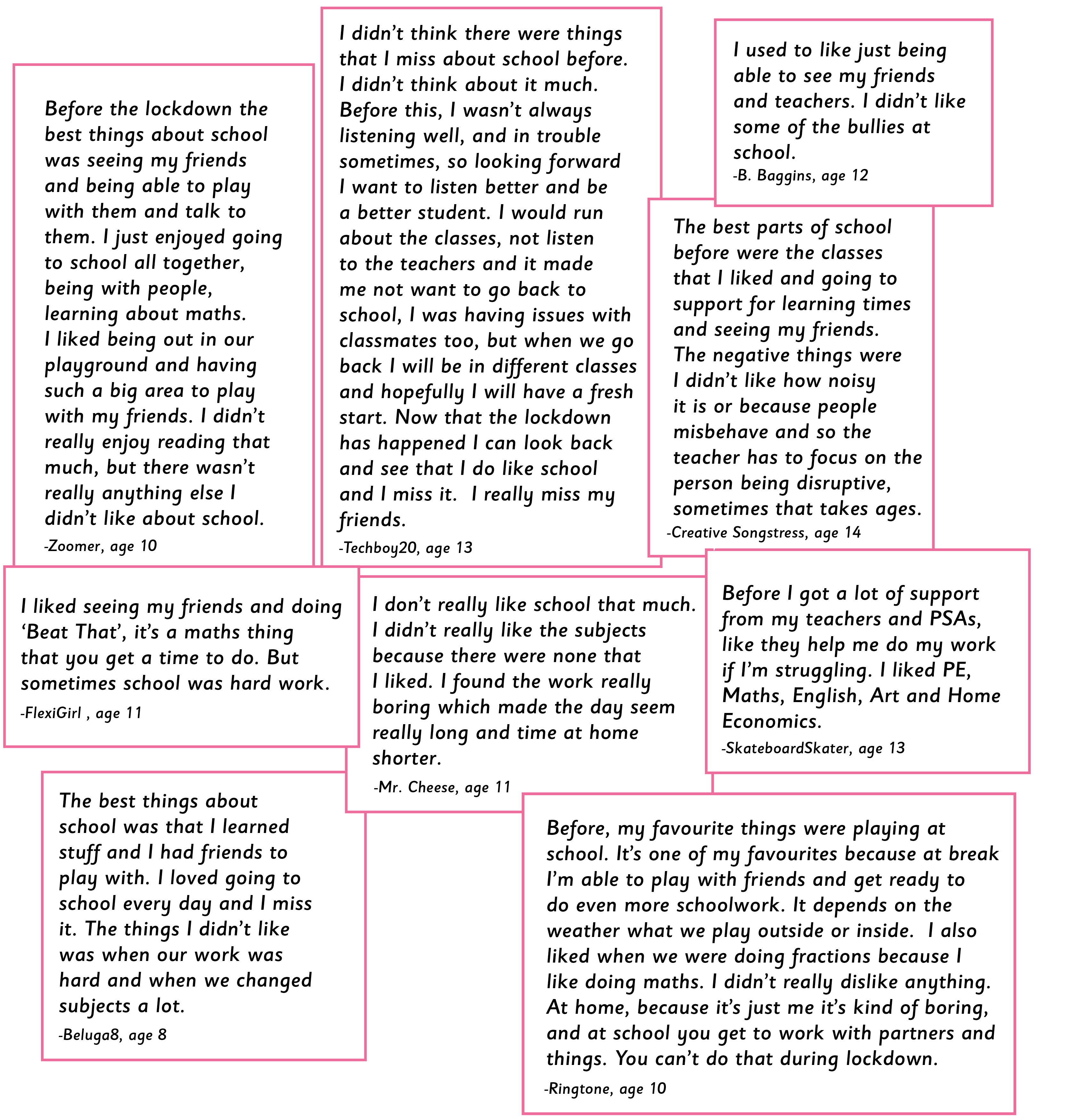

Learning has been quite different during the weeks of lockdown. Some of this learning at home has been positive, as these journalists describe. The most positive learning experiences are based on being able to schedule or structure one’s own learning, to have choice about what topics to learn about, that one-to-one support from someone at home means that it is possible to improve in some areas that might have been difficult at school, there is a strong sense for some journalists that learning at home is less stressful.
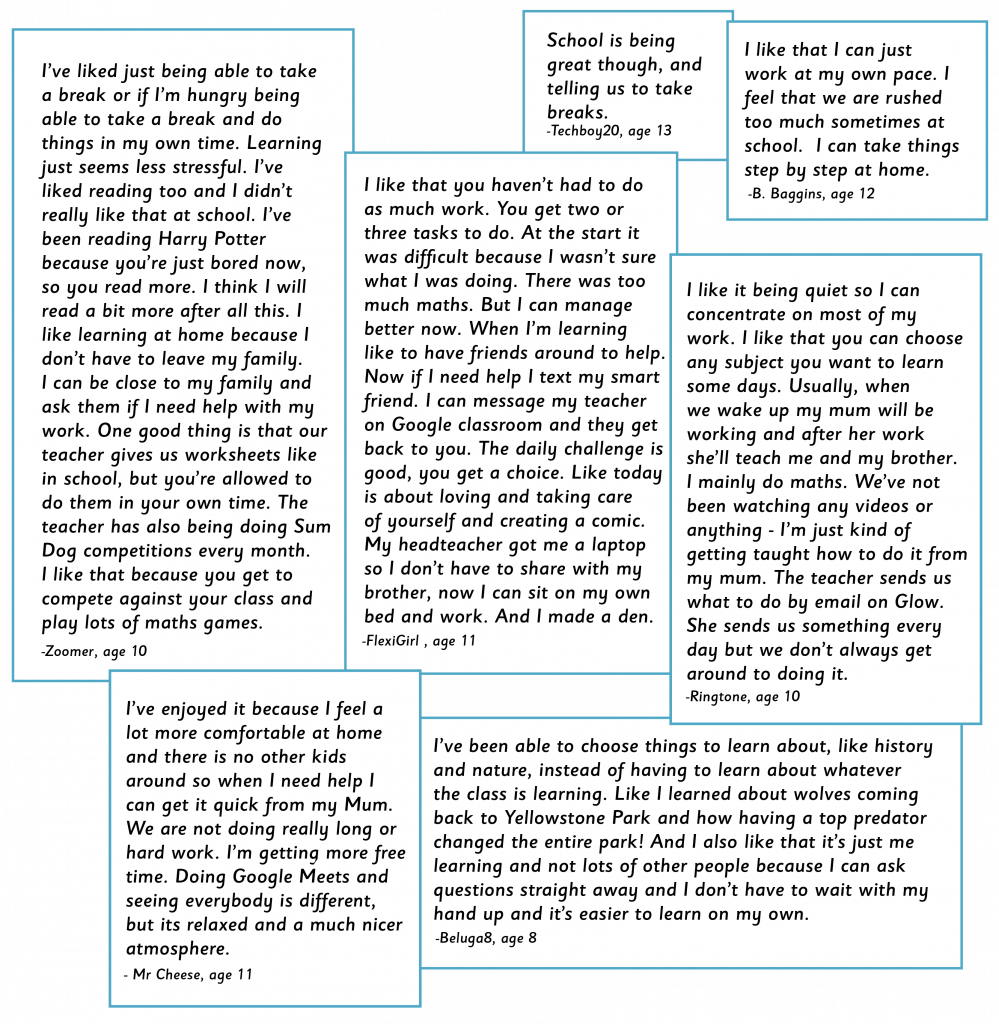

Journalists also describe what they have not liked, or struggled with, when it comes to learning at home. The immediate support that a teacher can give is a significant missing factor and online help from teachers can be delayed, direct support from teachers seems to be intermittent. Journalists have written about the help parents or carers can give, but while they can be supportive they might not understand enough to help, some of our journalists do not feel they are making progress with subjects.
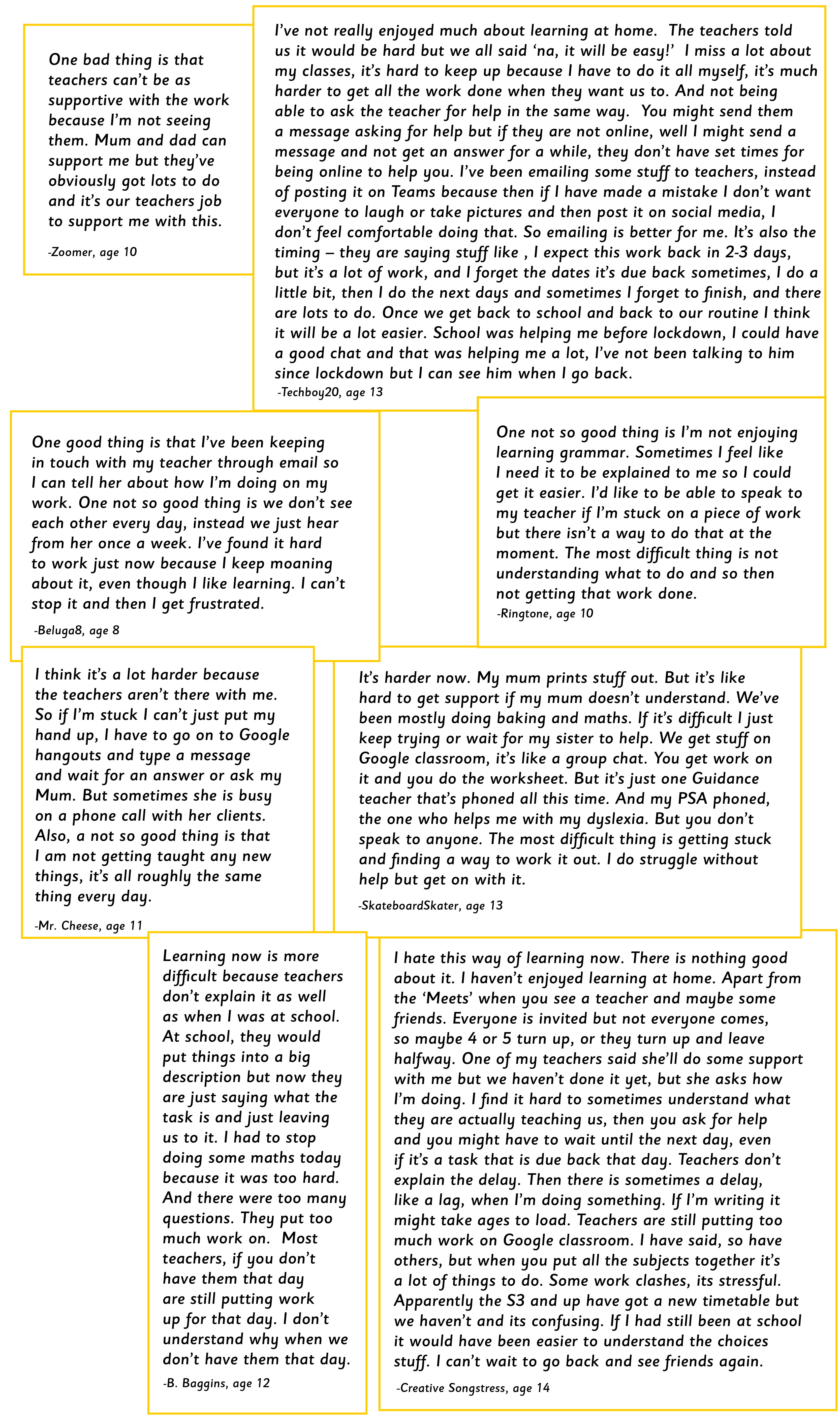

Journalists were asked to reflect on whether learning in lockdown had helped them learn or realise anything about themselves as learners. Again, some journalists recognise that they like having more control over their learning, or learning in less distracting environments, others now understand more about the role that their teachers play in supporting them to learn at school.
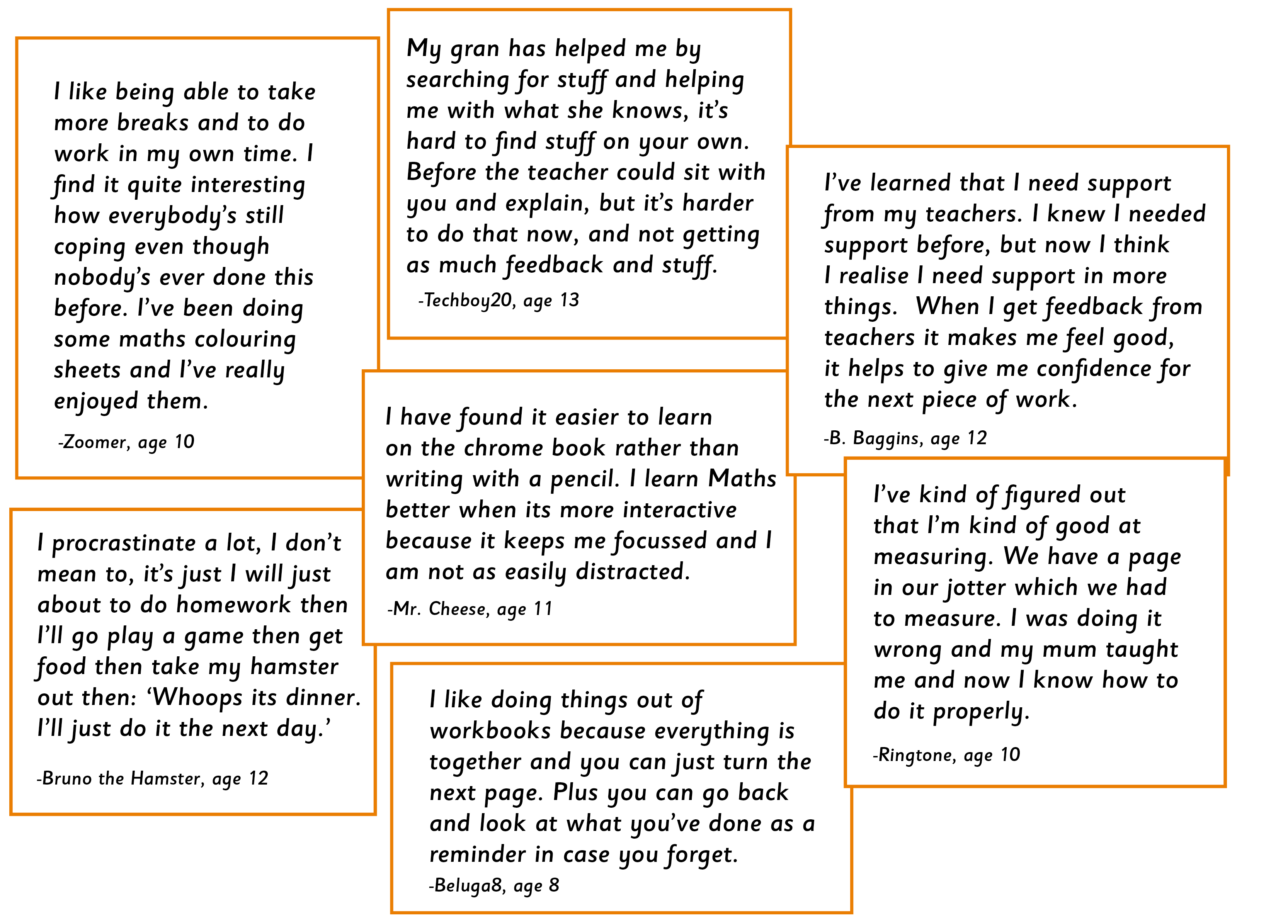

Having had a period of learning at home, we asked our journalists to consider what we might learn from the experience and how this should influence what school learning is like after they return to school. For our journalists there is a need for more outdoor learning and generally to be outdoors more. Learners need to have more choice over what and how they learn, learning should be fun. There is also a need for children to get the support they need as and when they need it, from class teachers and PSAs. Journalists also see the need for schools to be places where there is calm, respect and kindness.
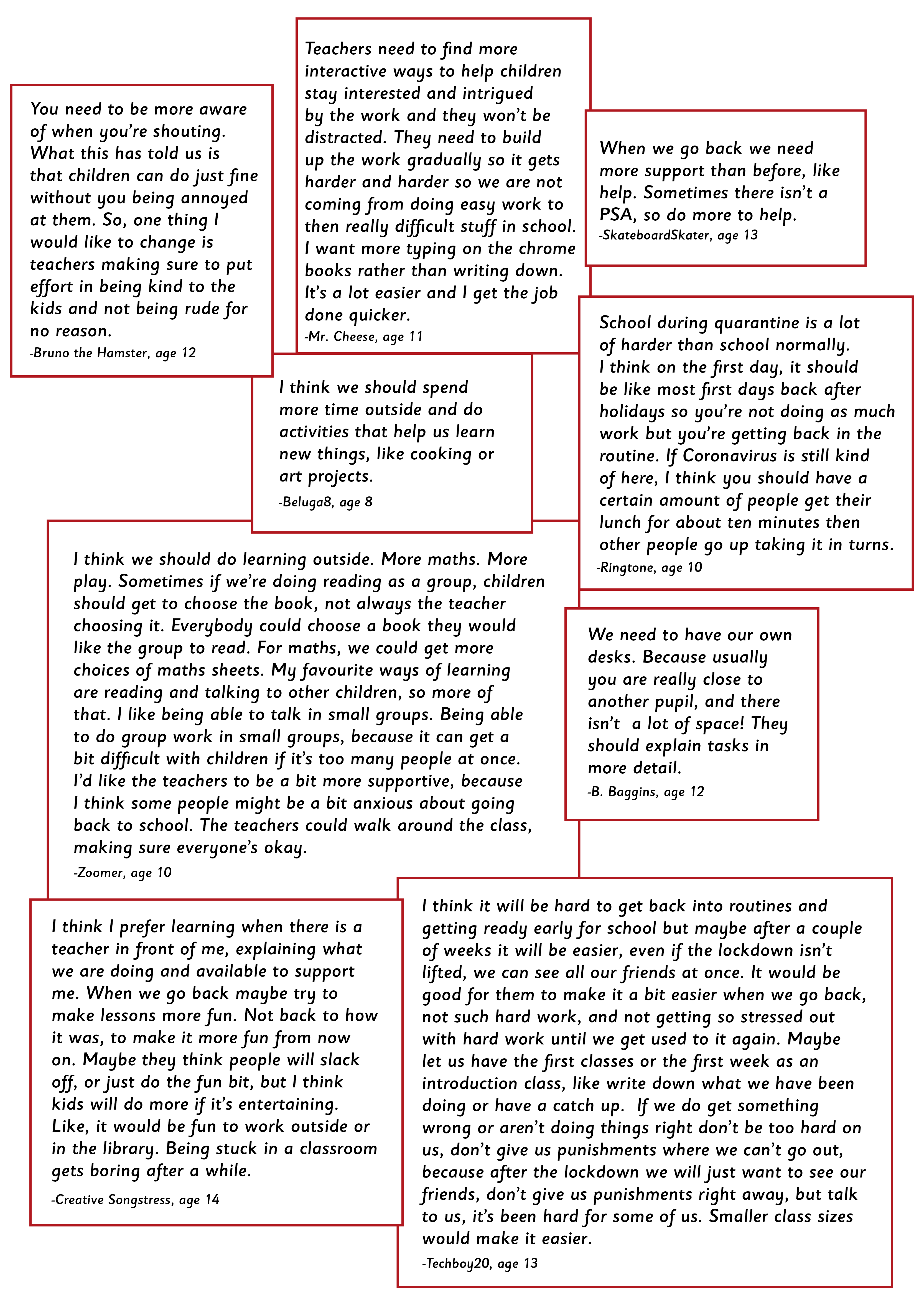

Journalists have reflected on how they feel about the return to school, and also what school staff can do to help children settle back into their school and learning. Our journalists suggest that relationships are important, that children need to be able to talk about lockdown and their feelings about going back to school. The return to school needs to be both gradual and gentle. Our journalists only want to return to school buildings when it is safe to do so, they recognise some very practical problems like inadequate hand-washing facilities to busy school buses. To feel confident and safe about the return to school the journalists identify that they need information that is directed to them, it seems like no-one is explaining what is happening about the return to school. Our journalists also clarify that for every child this lockdown period has disrupted the transition from one school year to another, this means schools need to consider how to ease worries over such transitions.
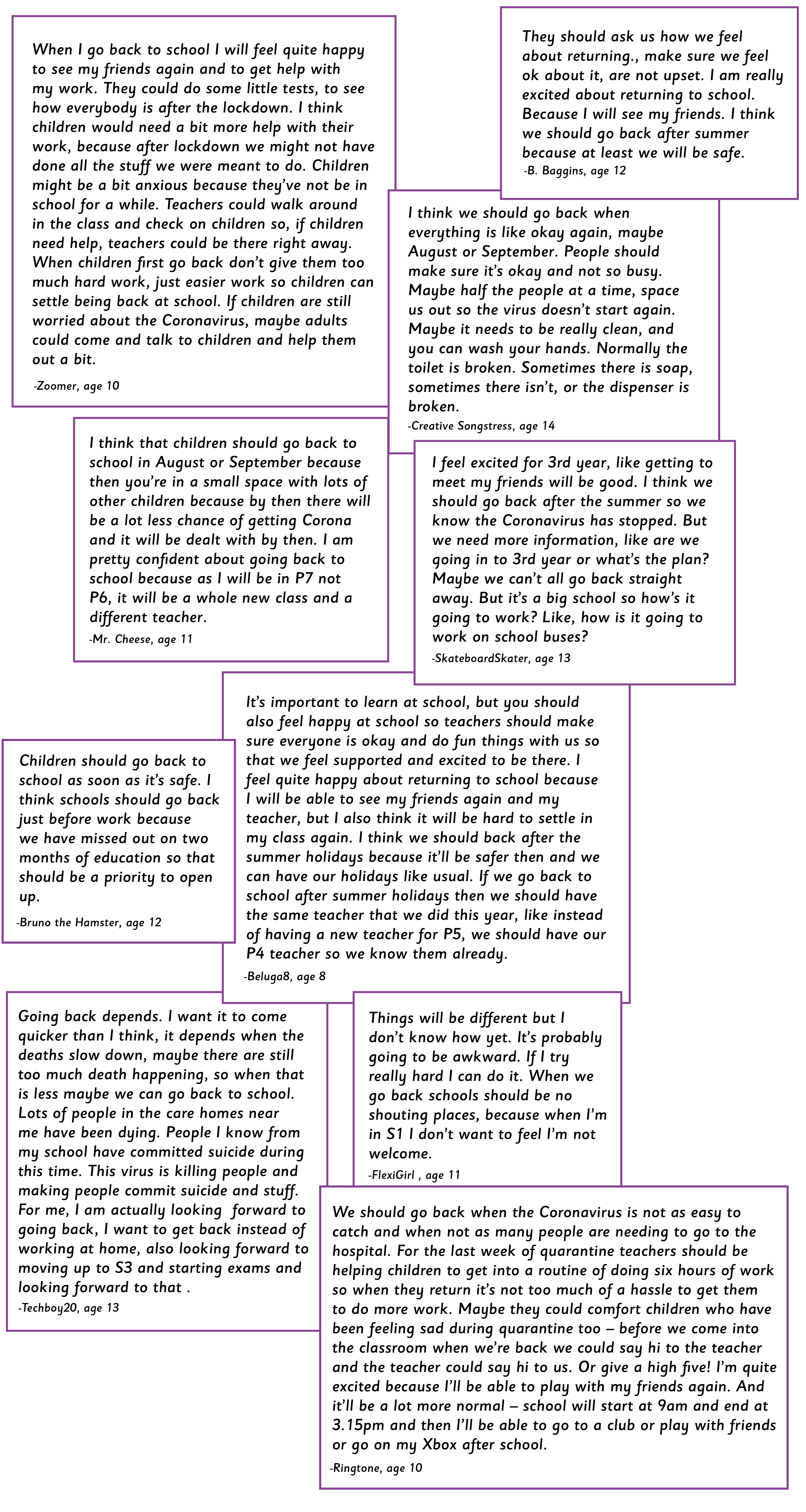

While every move from one year to another is a transition point for children, for those who are ending primary school this is a particularly challenging time. Our Corona Times journalists and other Members of Children’s Parliament (MCPs) have been talking with us about it. In this section of this Journal we draw on our work with two amazing primary schools in Aberdeen – Bramble Brae and Manor Park – who have supported our Imagining Aberdeen programme over several years. Children have said:
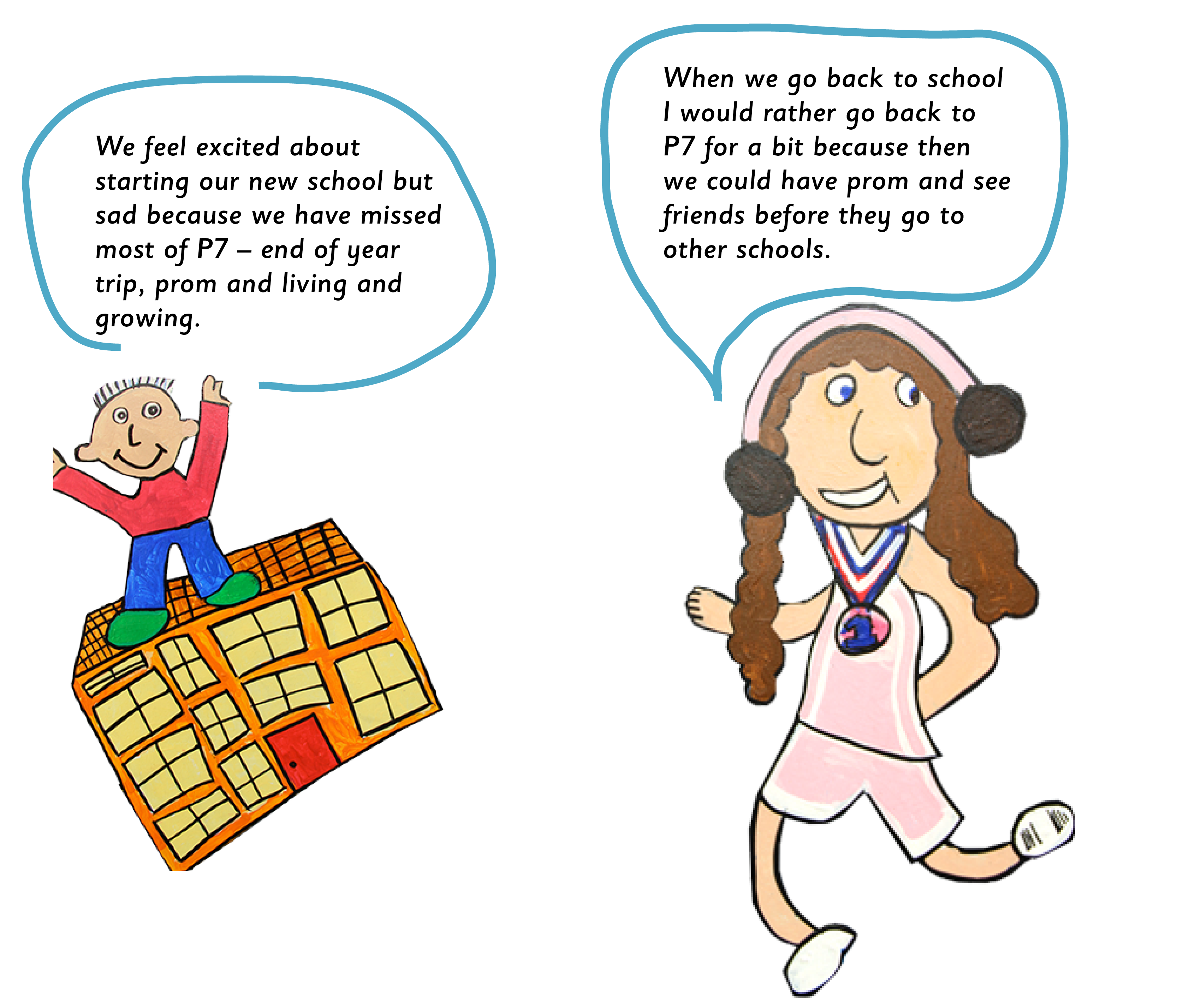
Our P7 children have given their ideas about how they can best be supported as they move to secondary school. The first ideas are what needs to happen now:
Then, when children go back to school these things could happen:
There are some things that children are particularly worried about and it is important adults in the secondary school understand what these are:
There are also things that our P7s are looking forward to. These include:
Special thanks go to our colleagues at Bramble Brae and Manor Park Primary schools for their support of the Aberdeen Imagineers. And also to all our parents and carers who have helped Journalists and Imagineers stay connected to Children’s Parliament in recent times. More about our Imagining Aberdeen programme here: https://www.childrensparliament.org.uk/our-work/imaginingaberdeen/

Do you have something you would like our journalists to consider? Or any feedback for the children? Get in touch info@www.childrensparliament.org.uk with the subject line The Corona Times Journal.
